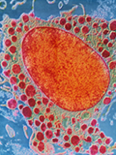
Annual Review of Immunology
Scope & Guideline
Advancing the Frontiers of Immunological Research
Introduction
Aims and Scopes
- Fundamental Immunology:
The journal covers core principles of immunology, including the mechanisms of immune cell activation, differentiation, and function. - Translational Immunology:
Research that bridges basic immunological principles with clinical applications, particularly in areas such as cancer immunotherapy, autoimmunity, and infectious diseases. - Neuroimmunology:
An emerging focus on the interactions between the immune system and the nervous system, addressing how these interactions influence health and disease. - Microbiome and Immunity:
Investigations into how the microbiota affects immune responses and overall health, emphasizing the role of microbial metabolites in immune regulation. - Immunotherapy:
Innovative approaches to harnessing the immune system for therapeutic purposes, including the development and optimization of immunotherapies for various diseases.
Trending and Emerging
- Tissue-Resident Immune Cells:
Research on tissue-resident lymphocytes and their roles in local immunity and tissue homeostasis is on the rise, showcasing the importance of understanding immune responses in specific microenvironments. - Cancer Immunology and Immunotherapy:
There is a significant increase in studies focused on understanding the immune landscape of tumors and developing effective immunotherapies, indicating a robust interest in cancer-related immunology. - Neuroimmune Interactions:
The exploration of how the immune system interacts with the nervous system is gaining traction, highlighting its relevance in conditions like neurodegenerative diseases and mental health. - Metabolism and Immunity:
Emerging research is examining the interplay between metabolic processes and immune function, suggesting that metabolic regulation is crucial for both innate and adaptive immunity. - Inflammatory Disease Mechanisms:
An increased focus on the mechanisms underlying chronic inflammatory diseases reflects a growing recognition of the need to understand these processes for therapeutic advancements.
Declining or Waning
- Traditional Vaccinology:
Research centered on classical vaccine development has become less prominent as the field shifts towards more innovative approaches, such as mRNA vaccines and personalized immunotherapies. - Basic Cytokine Biology:
While still important, the focus on individual cytokines and their functions has diminished in favor of more integrated systems approaches, reflecting a move towards understanding complex immune networks. - Innate Immunity Mechanisms:
There has been a noticeable reduction in papers solely dedicated to basic innate immune mechanisms, with a greater emphasis now on their interactions with adaptive immunity and their roles in disease.
Similar Journals
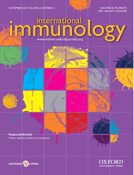
INTERNATIONAL IMMUNOLOGY
Leading the Charge in Immunological Discoveries and Developments.INTERNATIONAL IMMUNOLOGY, published by OXFORD UNIV PRESS, stands out as a premier journal in the field of immunology, providing a vital platform for disseminating groundbreaking research and innovative developments within the discipline. With an impressive Q1 ranking in Immunology and Allergy, as well as in Medicine (miscellaneous), it consistently showcases high-impact studies that contribute to the advancement of immunological knowledge. The journal spans over three decades, from its inception in 1989 to its ongoing contributions as of 2024, thus solidifying its reputation in the scientific community. Researchers, professionals, and students will find valuable articles that delve into the complexities of immune responses, therapeutic interventions, and emerging immunological paradigms, ensuring INTERNATIONAL IMMUNOLOGY remains at the forefront of knowledge in the life sciences.
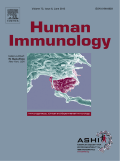
HUMAN IMMUNOLOGY
Exploring Innovations in Immunity and AllergyHUMAN IMMUNOLOGY, published by Elsevier Science Inc, serves as a critical platform for disseminating research in the fields of immunology and allergy, as well as various aspects of miscellaneous medicine since its inception in 1980. With an ISSN of 0198-8859 and E-ISSN 1879-1166, this journal is pivotal for researchers and practitioners looking to advance their understanding of human immune responses and related conditions. The journal currently holds a respectable position within its field, as highlighted by its 2023 Scopus ranks—#114/233 in Immunology and Allergy and #132/236 in Immunology and Microbiology. Moreover, it maintains a Q2 quartile ranking in both Immunology and Allergy and miscellaneous Medicine, underscoring its influence and reach within the scientific community. Although it does not currently offer Open Access options, HUMAN IMMUNOLOGY remains dedicated to providing valuable insights and fostering academic discourse within its discipline, characterized by a rigorous peer-review process and a focus on innovative research trajectories.

Immunotherapy Advances
Exploring novel strategies for a healthier tomorrow in immunotherapy.Immunotherapy Advances, published by Oxford University Press, stands at the forefront of the rapidly evolving field of immunology and microbe interactions, focusing specifically on novel immunotherapeutic strategies and their clinical applications. Established in 2021, this peer-reviewed journal aims to disseminate high-quality research that contributes to the understanding and advancement of immunotherapeutic techniques, potentially transforming patient care in immunology. With a current Scopus rank of #140 out of 236 in the realm of Immunology, placing it in the 40th percentile, Immunotherapy Advances is positioned to be an integral resource for researchers, healthcare professionals, and students eager to stay updated with groundbreaking findings and methodologies. The journal is dedicated to fostering innovative discussions and collaborations, ensuring open access to vital research that influences treatment paradigms globally.

TRENDS IN IMMUNOLOGY
Unlocking New Perspectives in Immune ScienceTRENDS IN IMMUNOLOGY, published by CELL PRESS, stands as a premier source of insights and developments within the field of immunology. With an ISSN of 1471-4906 and E-ISSN of 1471-4981, this journal has established a strong reputation, evidenced by its prestigious status in Q1 quartiles for both Immunology and Allergy in 2023. It is ranked #13 out of 233 in the Scopus category of Medicine – Immunology and Allergy, and #16 out of 236 in Immunology and Microbiology, placing it within the top 94th and 93rd percentiles respectively. Since its inception in 1987, TRENDS IN IMMUNOLOGY has provided a critical platform for researchers, professionals, and students to access the latest advancements and integrative reviews in immunological research. The journal offers open access options, enhancing the accessibility of its high-impact content to a global audience. Researchers and practitioners rely on its pages not only for cutting-edge findings but also for comprehensive discussions that drive the future of immunology research.
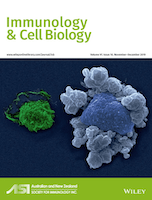
IMMUNOLOGY AND CELL BIOLOGY
Pioneering Research in Immune and Cellular BiologyIMUNOLOGY AND CELL BIOLOGY, published by Wiley, serves as a prominent platform for disseminating cutting-edge research in the fields of immunology and cell biology. With an ISSN of 0818-9641 and an E-ISSN of 1440-1711, this journal has established itself since its inception in 1987, demonstrating a commitment to advancing knowledge in its disciplines through high-quality articles. Renowned for its rigorous peer-review process, it holds a Q2 quartile ranking in both immunology and cell biology categories as of 2023, showing its competitive stature in these fields. IMUNOLOGY AND CELL BIOLOGY is indexed among the elite journals worldwide, with impressive Scopus rankings, including a rank of #75/233 in Immunology and Allergy. The journal’s comprehensive scope ensures that it caters to an audience of researchers, professionals, and students who are dedicated to exploring the intricate mechanisms of immune responses and cellular interactions. Although it does not operate under an open access model, its subscription-based content remains invaluable for those seeking to broaden their understanding of immunology and cell biology. By providing a forum for significant scientific dialogue, IMUNOLOGY AND CELL BIOLOGY continues to shape the future of research in these vital areas.
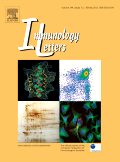
IMMUNOLOGY LETTERS
Bridging the Gap Between Immunology and Clinical PracticeIMMUOLOGY LETTERS, published by Elsevier, is a distinguished journal in the field of immunology, focusing on the latest advancements and findings that significantly influence immunological research and clinical applications. Established in 1979, the journal has evolved to cater to a global readership, featuring high-quality peer-reviewed articles across a diverse spectrum of topics related to immunity and allergic responses. With an impressive Q2 category ranking in both Immunology and Allergy as of 2023, it holds a strong position within the scientific community, evidenced by its commendable Scopus rankings (Rank #71/233 in Medicine - Immunology and Allergy and Rank #85/236 in Immunology and Microbiology - Immunology). While primarily subscription-based, the journal aims to foster knowledge dissemination that encourages collaboration among researchers and practitioners alike, making significant contributions to the understanding of immune mechanisms. The journal is integral for educators, students, and professionals aiming to stay abreast of current trends and breakthroughs in the immune system's intricate functions.
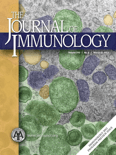
JOURNAL OF IMMUNOLOGY
Elevating the Science of ImmunologyWelcome to the JOURNAL OF IMMUNOLOGY, a prestigious publication associated with the American Association of Immunologists and dedicated to advancing the field of immunology. With a rich history dating back to 1945, this journal is renowned for its high-impact research, evident in its notable 2023 Q1 rankings in both Immunology and Allergy, as well as its strong positions in Scopus rankings—Rank #68 in Immunology and Allergy and Rank #79 in Immunology and Microbiology. Although it operates on a subscription basis, its commitment to publishing cutting-edge studies ensures that it remains a vital resource for scientists, healthcare professionals, and students alike. As the journal continues to pave the way for innovative research and breakthroughs in immunological science, it facilitates a platform for dialogue and discovery among researchers and practitioners across the globe.

CLINICAL IMMUNOLOGY
Elevating Knowledge in Clinical ImmunologyCLINICAL IMMUNOLOGY is a premier academic journal dedicated to the field of immunology, published by Academic Press Inc. Elsevier Science. With a robust impact reflected in its recent categorization as Q2 in Immunology and Q1 in Immunology and Allergy for 2023, this journal stands out as a key resource for researchers and professionals alike. Featuring a diverse array of articles from fundamental laboratory studies to advanced clinical applications, CLINICAL IMMUNOLOGY aims to disseminate significant research findings that contribute to the evolving landscape of immunological science. Its notable Scopus rankings underscore its esteemed position, with ranks of #33 and #36 in the respective categories, highlighting its commitment to high-quality scholarly work. Although not an open-access journal, it ensures access to valuable insights and developments in the immune response and related fields, making it an indispensable tool for students and professionals aiming to stay at the forefront of immunological research.

IMMUNOBIOLOGY
Innovating knowledge in hematology and immunology since 1979.IMMUNOBIOLOGY is a prestigious academic journal published by Elsevier GmbH that significantly contributes to the fields of hematology and immunology. With its ISSN 0171-2985 and E-ISSN 1878-3279, this journal has been disseminating impactful research since 1979, positioning itself at the forefront of immunological and hematological advances. The journal holds a commendable ranking of Q2 in Hematology and Q3 in both Immunology and Immunology and Allergy, indicating its relevance and influence within the scientific community, as reflected by its Scopus rankings. Although IMMUNOBIOLOGY operates under a subscription model, it remains dedicated to expanding knowledge across disciplines, fostering innovative research, and facilitating connections among researchers, professionals, and students. Situated in Munich, Germany, this journal is continually evolving and aims to remain an essential resource for the latest discoveries and insights in the realms of immunity and blood disorders, ultimately enhancing our understanding of complex biological systems.
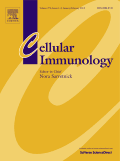
CELLULAR IMMUNOLOGY
Connecting Scholars in Cellular ImmunologyCELLULAR IMMUNOLOGY is a prestigious journal published by Academic Press Inc. Elsevier Science, dedicated to advancing the field of immunology. Established in 1970 and converging ongoing research up to 2024, this journal has carved out a significant niche within the academic community, boasting a notable Q2 ranking in the Immunology category and holding a respectable 67th percentile ranking within Scopus for its contributions to the disciplines of Immunology and Microbiology. The journal serves as a vital platform for disseminating high-quality research, reviews, and methodologies that elucidate the intricacies of cellular immune responses, thereby benefiting researchers, professionals, and students alike. Although it does not offer open access, the journal's impact is evidenced by its comprehensive coverage of pioneering studies and ongoing developments in the immunological sciences, positioning it as an essential resource for those seeking to deepen their understanding and engage with the latest findings in cellular immunology.